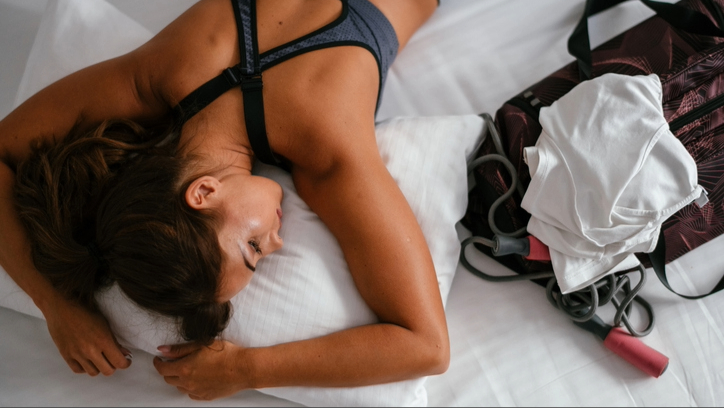
From contrast therapy to expensive massages and fancy tech like compression boots, there's plenty of trendy workout recovery methods doing the rounds on social media in the peak of generation wellness. But there's one method that often gets over looked — getting good sleep. I'm training for a marathon, and I can't understate the importance of quality rest.
During sleep, your body releases human growth hormone and does the behind-the-scenes work to repair your muscles for optimal athletic performance. So, it's essential you get the rest you need, and setting yourself up for quality rest begins with choosing the best mattress for your body type and sleep style.
We spoke to certified strength and conditioning coach and co-founder of Dream Performance & Recovery, Todd Anderson, to hear how a good mattress help you get the best recovery between workouts this new year. I'll also be sharing my tips for recovery and the mattress I use while training for a marathon.
The mattress I'm using while training for a marathon
I'm currently sleeping on a budget spring mattress, but I have paired it with the Eight Sleep Pod 4 mattress cover. This smart mattress cover has automatic climate control and integrated sleep tracking, which has elevated my sleep. As someone who sleeps hot, the Pod 4 has helped regulate my temperature through the night, ensuring hot flushes don't disrupt my snooze. Having access to a nightly sleep score and report holds me accountable.
I am more inclined to prioritise my rest and a healthy bedtime routine when I can physically see and measure how it affects my sleep quality. I can also plan whether to push myself further in training or take it easy for a day, based on the sleep I got the night before. You can also get an adjustable bed base from Eight Sleep, to further support your body. Other great alternatives I considered were the Bear Elite Hybrid and the Zoma Boost Mattress. These both feature specialist recovery technology which help circulation, support the body and boost muscle repair without any app or tracking tech.
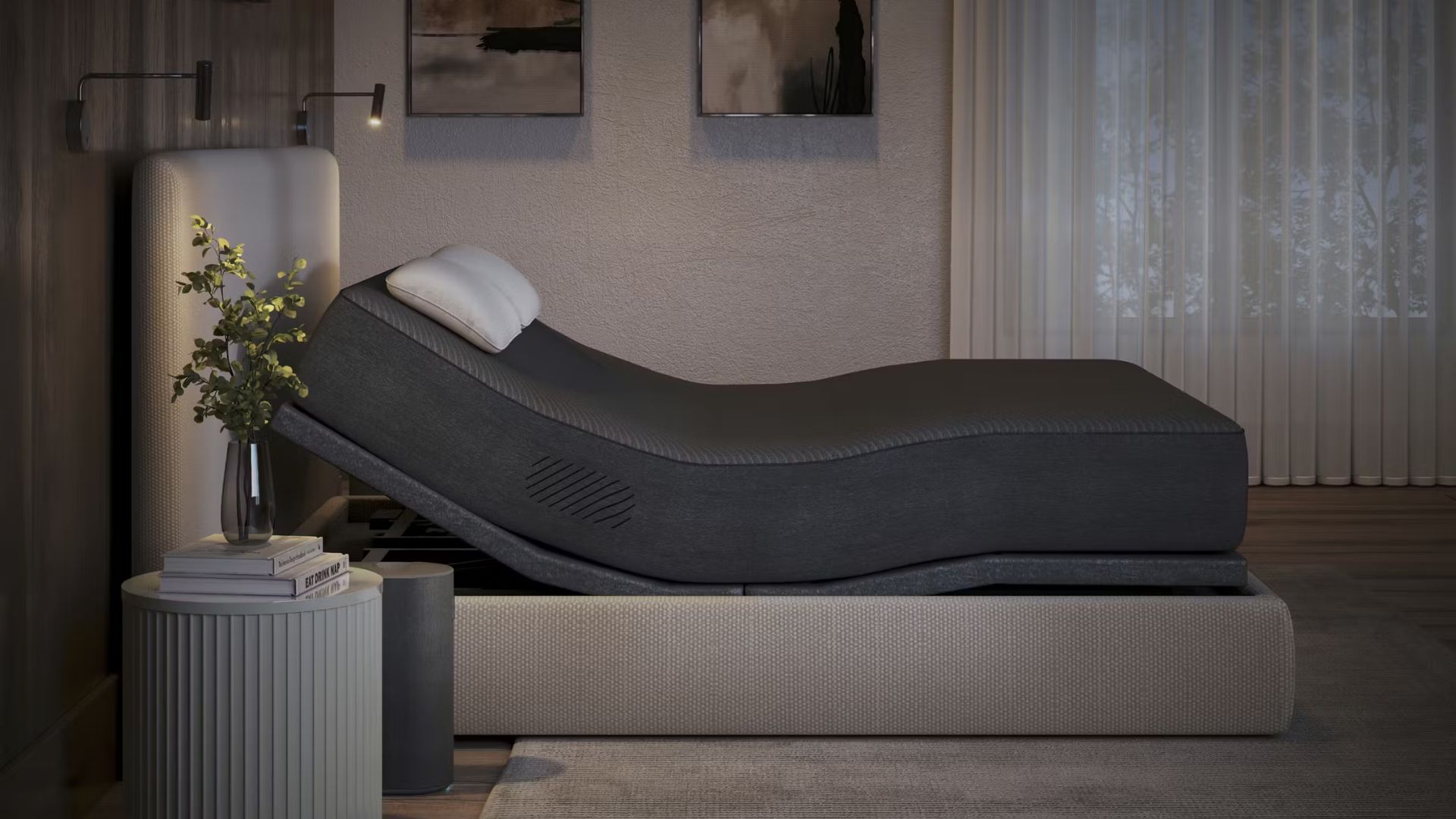
How a good mattress can boost your recovery
From aiding more restful sleep to targeting muscle health, there are five main ways a good mattress can boost your recovery between workouts. Let's look into them...
1. Promote quality sleep
Anderson calls sleep "your ultimate recovery tool". Therefore, making sure your getting good quality ZZZs is essential for allowing your body to recover optimally. Your pituitary gland releases human growth hormone, the repair fuel for your muscles, while you sleep.
After you work out your muscle fibers get tiny tears from the strain and human growth hormone fixes those tears, building your muscles stronger. Most of this happens during the deepest sleep phase, slow-wave sleep and the better your sleep quality, the more human growth hormone your body produces.
"The right mattress improves sleep efficiency, allowing more time in the deep and REM stages, where the majority of muscle recovery and memory consolidation occur. Poor mattress quality is linked to sleep fragmentation," says Anderson.
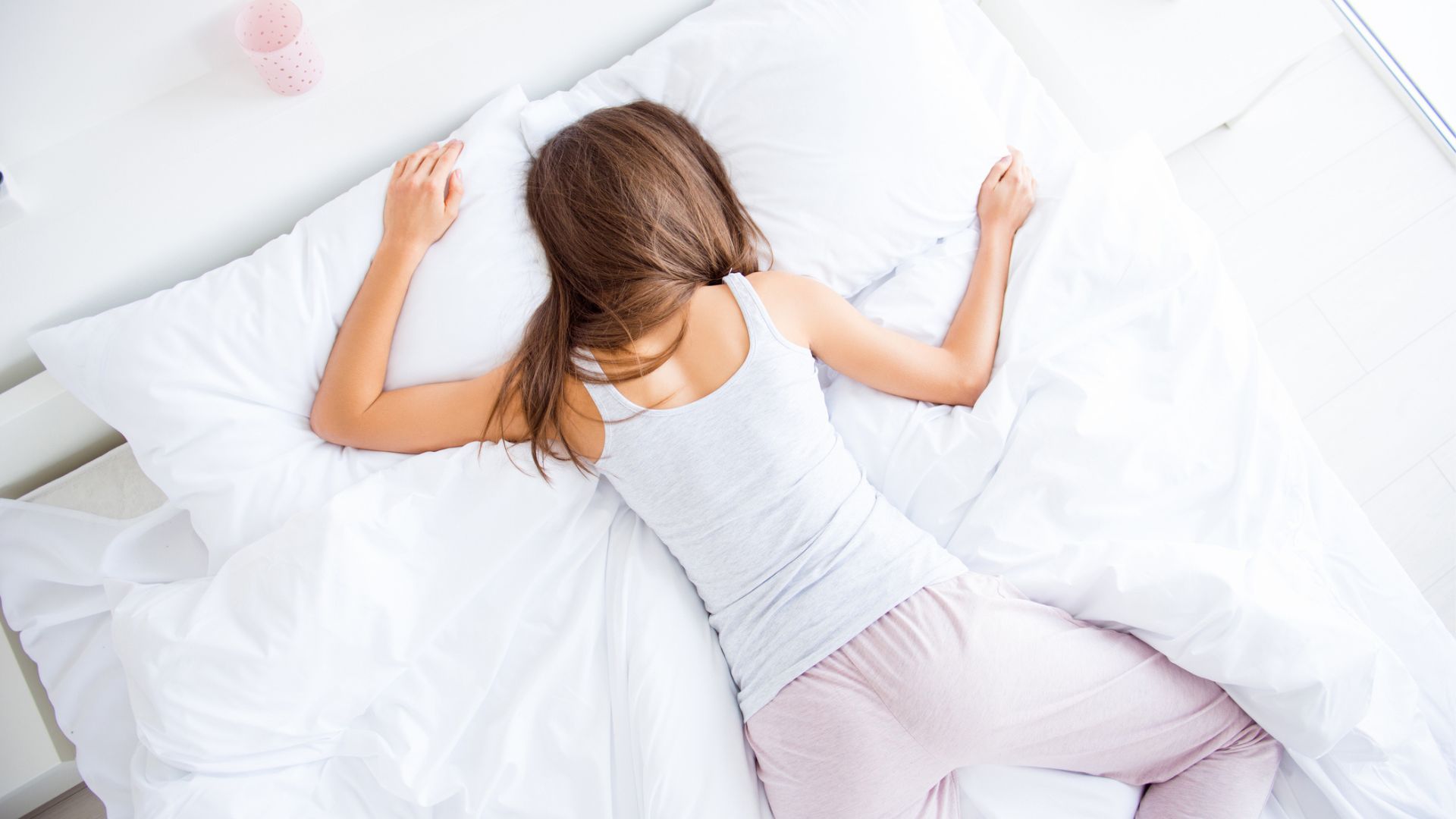
2. Support your spine
Providing the central support structure for your body, you should protect your spine at all costs, especially if you want to remain active and agile. A good mattress provides proper spinal alignment, keeping the spine in a neutral position and reducing strain on muscles and joints. This also ensures healthy blood circulation so the body can heal naturally.
Heavier bodies with higher muscle mass, like those of athletes, need a supportive mattress that will keep the spine aligned. Anderson explains: "Athletes often carry 20-30% higher muscle mass, which can wear out mattresses faster. Therefore, a durable, responsive mattress ensures consistent support over time without sagging." Check this year's best mattress for heavy people guide for our top picks.
3. Temperature regulation
Research shows active people are more likely to sleep hot due to their increased metabolic rate from exercise, which can elevate body temperature even after a workout, leading to night sweats.
The best cooling mattresses have specialist materials and designs to keep you cool through the night. Mattresses with cooling technology like gel-infused memory foam, breathable covers, smart cooling and hybrid designs help keep your sleep environment at an ideal sleep temperature. Preventing overheating from interrupting your sleep, these mattresses ensure you get longer, more restorative sleep. Our best cooling mattresses will be a good place to start for those who wake up in sweats.
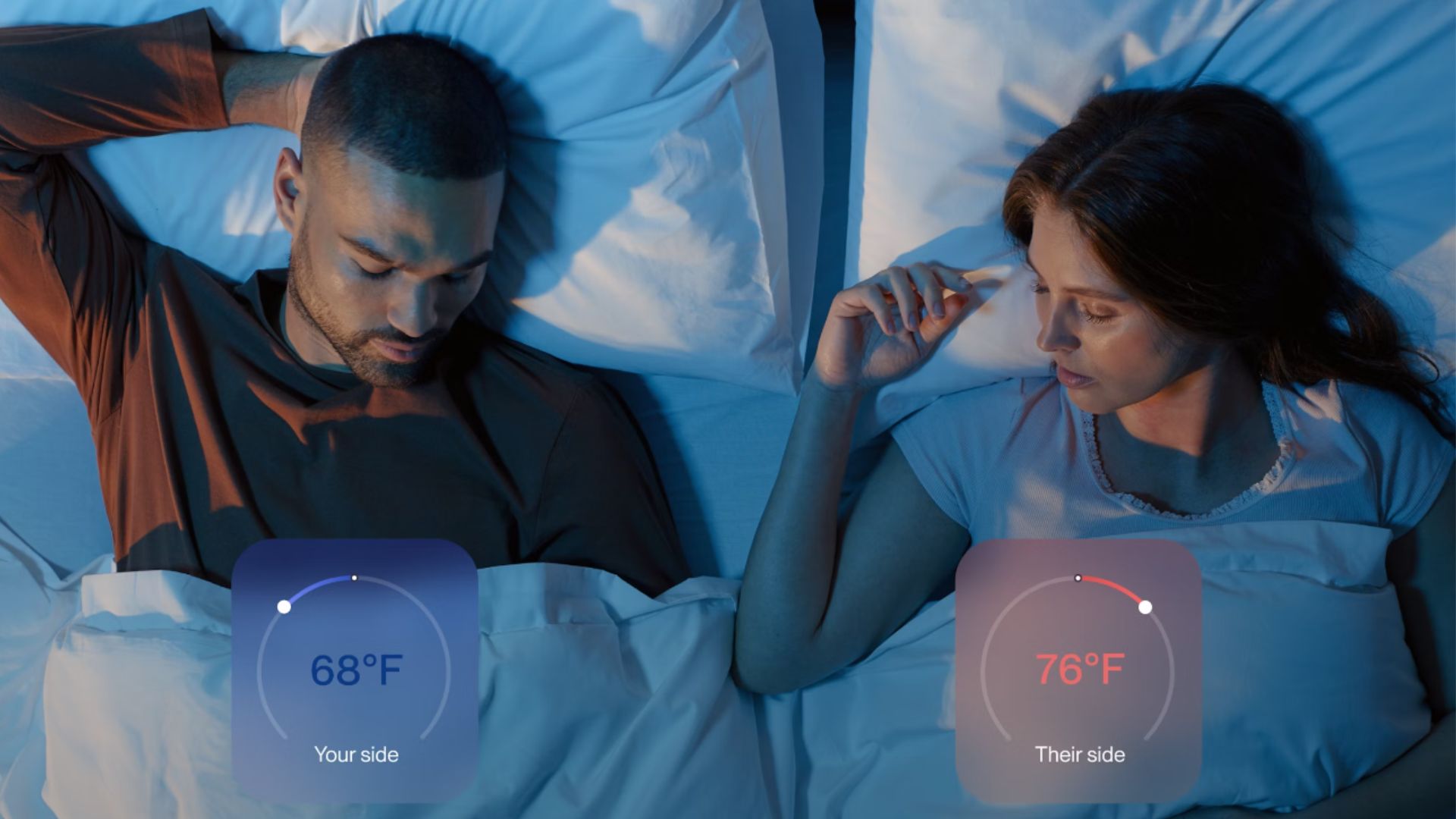
4. Infrared technology
Some mattresses take their recovery game even further, employing specialist infrared technology to help you sleep peacefully and recover efficiently. For example, in our Bear Elite Hybrid mattress review, we discuss the Celliant feature, a synthetic fiber that converts body heat into infrared energy, which is then reflected back into the body. This enhances thermoregulation, improves blood circulation and increases oxygen supply to cells, which equals better performance and recovery.
5. Relieves pressure build up
A quality mattress with a good balance of support and pressure relief takes care of your joints and muscles. The best memory foam mattresses or hybrid mattresses featuring latex or memory foam cradle pressure points, making sure tension doesn't build up in the hips, shoulders or knees while you sleep.
As well as keeping you comfortable so you get unbroken quality sleep, this also prevents aches and pains. Your muscles are already likely to be sore after intense training so you want to make sure your mattress is helping rather than hindering recovery and athletic performance.
My sleep tips for good recovery
I train with a hybrid style, incorporating a mixture of running, weight training, HIIT and other cardio, and have done for eight years. These are the sleep tips I have picked up to improve my rest and recovery along the way...
1. Time your hydration
Hydration is a key component of staying active and healthy. It is essential for muscle function, helps you avoid cramps, regulates body temperature and boost overall performance. But chugging water before bed is a recipe for poor sleep. A common reason people wake up at night is to use the bathroom, after all.
Therefore, while it is important to remain hydrated throughout the day, you should avoid too much water right before bed as you don't want bathroom trip cutting into your all-important recovery time.
2. Nighttime sauna, morning cold plunge
Anderson recommends a sauna session later in the day as it can "help relax muscles, reduce stress, and lower your heart rate, priming your body for restful sleep." Meanwhile, he says: "Starting your day with a cold plunge can boost circulation, reduce inflammation, and improve alertness, setting you up for peak performance."
You can replace the nighttime sauna with a hot bath and morning cold plunge with a cold shower if you don't have the facilities available to you. Moving from a warm bathroom to a cold bedroom will also help lower your core body temperature, which is a key indicator for your body and mind to switch off for sleep.
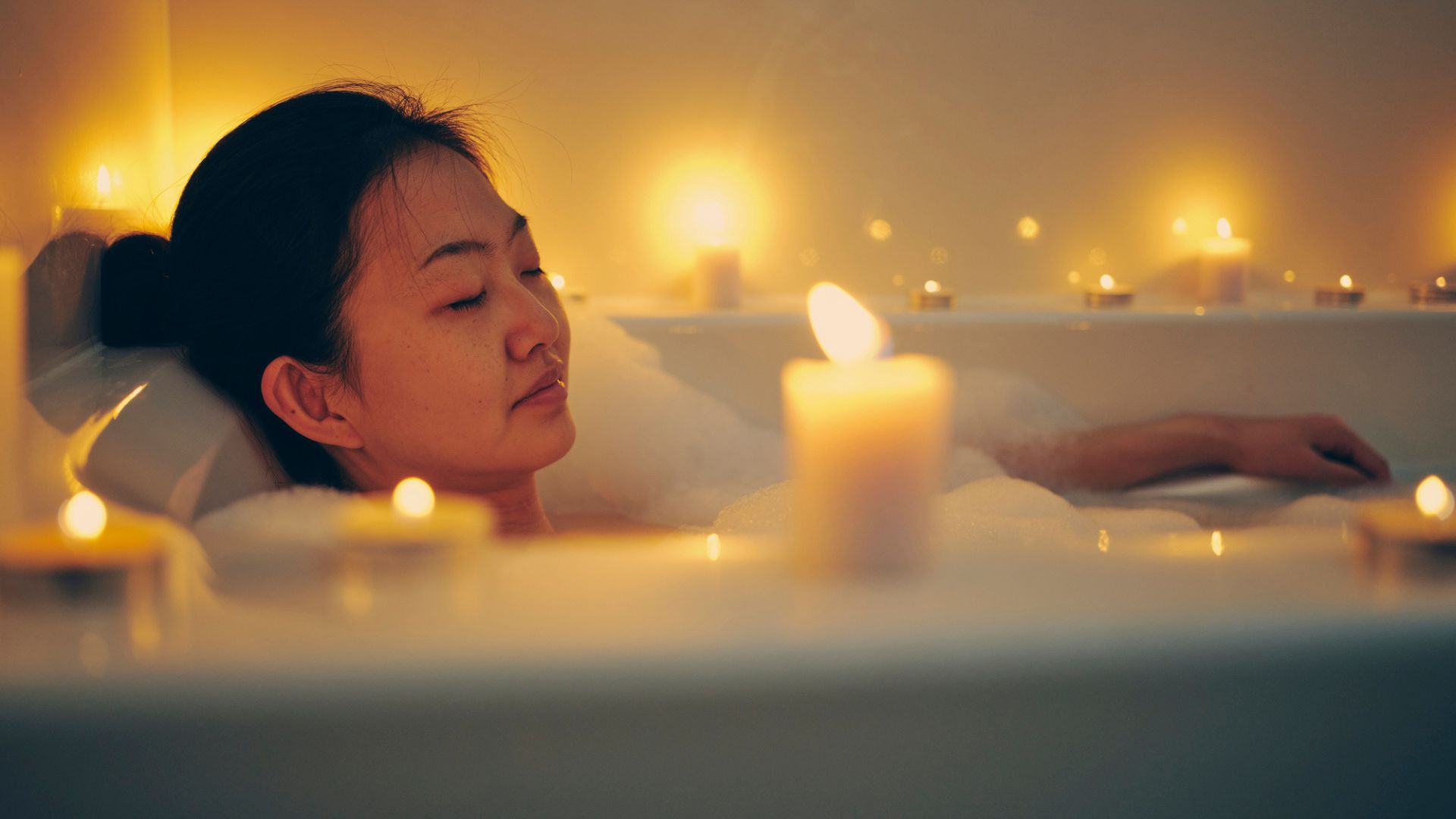
3. Regulate your circadian rhythm
A well-regulated internal clock, where your body is good at recognising when it is time to sleep and when it is time to wake up, is key to sleeping efficiently. You can regulate your circadian rhythm and hormone cycles by exposing yourself to light, especially natural sunlight, early in the morning.
Light exposure signals your body to release cortisol, which helps you feel alert, and suppress the sleepy hormone melatonin. This raises your energy levels, making morning exercise easier, and promotes relaxation later in the day, which helps you fall asleep faster and sleep better the following evening.
Anderson says: "Consistent sleep schedules improve recovery, cognitive function, and athletic performance by as much as 15-20%. This regularity allows your body to predict and maximize the restorative stages of sleep, like deep sleep and REM." An easy way to get your fill of daylight is to swap your gym workouts for an outdoor run or training session.







